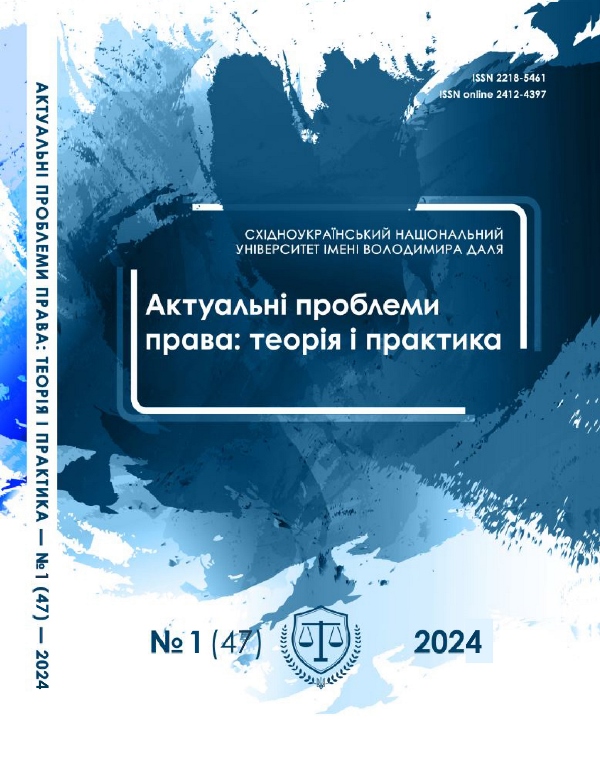ACCESS TO THE COURT IN CRIMINAL PROCEEDINGS IN THE PRACTICE OF THE ECtHR
DOI:
https://doi.org/10.33216/2218-5461/2024-47-1-83-91Abstract
In the scientific work, based on the analysis of
the domestic legal doctrine and the practice of the
European Court of Human Rights, the peculiarities of
the concept of access to the court and its difference
from other related categories are determined. The
legal positions of the European Court of Human
Rights, which embody the substantive meaning of the
"access to court" category and cases of its limitation,
have been studied.
Taking into account domestic scientific
approaches, the following main meanings of the
"access to court" category are distinguished: 1)
access to court as an element of the right to a fair trial;
2) access to court as a subjective right of a person. It
was concluded that access to the court is meaningfully
interconnected with other components of the right to a
fair trial, such as publicity, openness and openness of
the court proceedings, ensuring the right to defense
and equality before the law and the court.
Taking into account the specifics of criminal
procedural legislation, the definition of the right of
access to the court is given as the possibility of a
person to apply to the court in the classical sense, as
to a state institution established by law.
The author researched the meaning of the
concept of the right of access to justice, under which
it is understood both the formal possibility of applying
to the court, both to the institution, and the possibility of a person to take an active part during the trial in
criminal proceedings.
On the basis of the analysis of the practice of the
ECtHR, the most common types of restrictions on the
right to access to the court were studied, including
procedural restrictions, which consist in enshrining in
the national procedural legislation restrictions on the
term of appeal to the court, as well as grounds for
review of the case by higher courts.
Current court cases were analyzed in which the
applicants complained about the violation of the right
of access to the court in criminal proceedings,
including: "Cart v. Turkey", "Dorado Baulde v.
Spain", "Guerin v. France", "Poitrimole v. France",
"Maresti against Croatia".
The author researched the most common cases
of procedural restrictions on the right to access to the
court in the practice of the ECtHR, including in
particular: refusal of cassation review on the basis of
the applicant's failure to comply with the warrant for
his arrest, refusal to review the decision on the grounds of the applicant missing deadlines, legislative limitation of the grounds for reviewing the decision of a lower instance .
Key words: access to justice, access to court, right to a fair trial, legitimate restrictions, ECtHR practice, legal doctrine.

